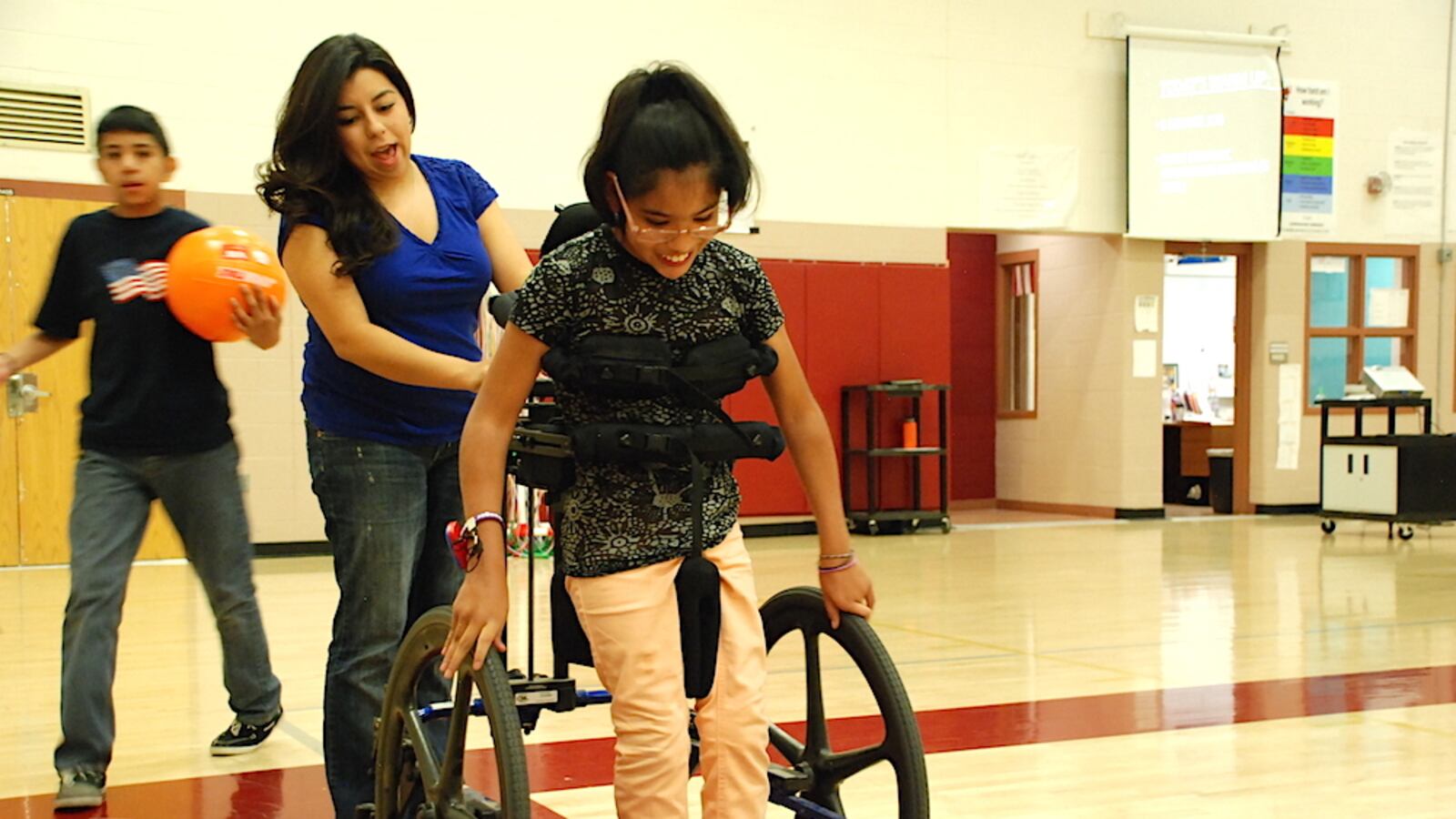Parents of students with special needs face tough choices about whether to send their children to school during a Denver teacher strike.
Some parents have already decided to keep their children home from school next week because of worries about safety, lack of consistency, and the possibility that hard-won progress could be lost. Other parents, though perhaps anxious about how their children will fare at school during a strike, don’t have the option to keep them home.
District officials said they plan to prioritize the most vulnerable special education students in allocating staff during a strike, particularly students who are deaf, blind, medically fragile or attend center-based programs — self-contained classrooms for students with more intense needs. Officials also said school leaders have already compiled information for substitute special education teachers and that those subs will work to follow students’ special education plans.
Nelson Boyle, whose sixth-grade daughter is on the autism spectrum but attends class with general education students, said he doesn’t plan to send her to school if there’s a strike, both for her own safety and that of other students.
“If she gets agitated, she’s big enough she could throw a chair, or a desk, or knock something over,” he said.
He fears that substitute teachers won’t know that something as simple as being called “sweetie” or “honey,” instead of being addressed by her name, can trigger his daughter’s frustration. Plus, calming down in the midst of a meltdown may be tougher for the 12-year-old without her usual team in place — the special education teacher and school counselor among them.
Boyle, a lawyer, said he “totally” supports teachers’ right to strike, but wishes both the district and union would give special education teachers “a free pass to cross the picket line and ensure the safety of all the kids in the school.”
District officials said in an email Friday that in addition to focusing on the needs of the most vulnerable special education students during a strike, they will put a premium on student safety in covering for staff members, such as nurses and counselors, who hold non-teaching jobs but are part of the teachers union. Staff members such as paraprofessionals, sign language interpreters and Braillists — specialists who write or transcribe Braille — are not part of the teachers union and will continue to serve the students to whom they are assigned, the email said.
Boyle said he and his wife will also keep their fifth-grade daughter, who is a typically developing child, home from school during a strike. In part, it’s because her sister will be home already, but also because they worry about safety if special education students at their fifth-grader’s school lack their usual support. Boyle said the girls’ grandparents, who live locally, will help watch them while they’re out of school.
Danielle Short, whose first-grader, Micah, has Down syndrome, said the decision to keep him home from Denison Montessori School during a strike was “pretty easy.”
“He struggles with transitions and changes … He’s very sensitive,” she said. “I don’t want him to learn bad habits by being in a chaotic situation.”
She said Micah is motivated by getting attention, and that substitute teachers who don’t know him well may correct inappropriate behavior or otherwise devote attention to it, inadvertently fueling the problem.
In addition, when he’s anxious or uncertain, Micah sometimes swats at classmates or adults.
Short, who gets most of her income from being a certified nursing assistant for her son during the mornings and evenings, plans to stay home with Micah next week. Her 16-year-old daughter, a typically developing student, will attend high school as usual, she said.
Keely Buchanan, whose two sons have attention deficit hyperactivity disorder, plans to spend $500 to send them to a child care center in Centennial if there’s a strike next week.
She’s used the center a few times during school holidays or teacher work days and said she’s comfortable with the small class sizes there.
Sending her boys, a first-grader and third-grader, to school when things could be chaotic is “too much of a gamble,” Buchanan said. “I think they would lose a lot of the successes they’ve built in the last few months.”
In addition to having special education plans, the boys have separate behavior plans as well as special plans designed for gifted students. One also receives medication at school every day.
Buchanan, who helps run a consulting business that helps parents navigate Denver’s school choice process, said part of her decision not to send her kids to school stems from knowing that she has the ability to pay for private care. She hopes holding out her sons, who she knows are more challenging than other students, will make it easier for students who don’t have a choice but to be in school during a strike.
Boyle, Short and Buchanan all said they sympathize with Denver teachers.
Buchanan said, “If my kids were neurotypical I would absolutely send them [to school] to show my support for the teachers.”
Short said as the parent and primary advocate of a student with special needs she knows how much teachers are asked to do, especially when it comes to serving students like her son.
“I can feel their stress,” she said. “I just wish the district would focus on finding ways to be collaborative with teachers and really show how respected they are as professionals.”


